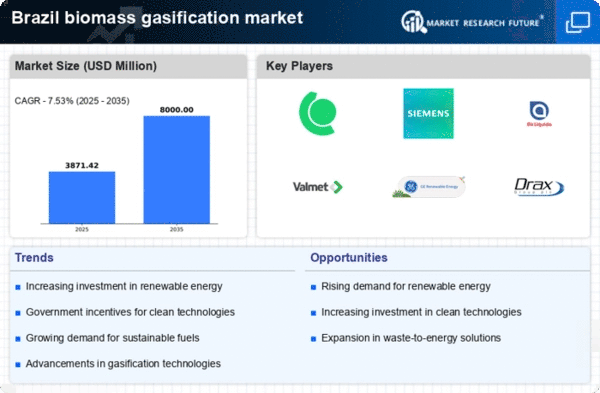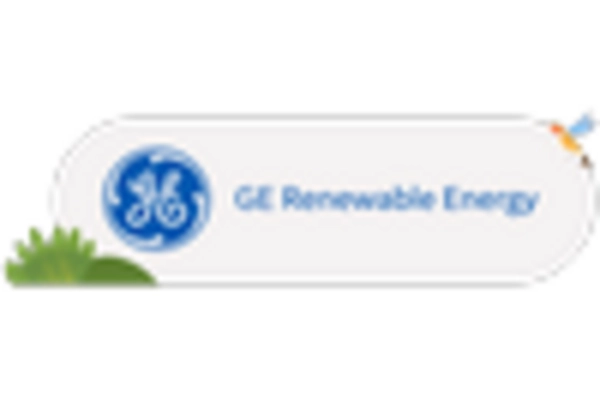Rising Energy Demand
The increasing energy demand in Brazil is a crucial driver for the biomass gasification market. As the population grows and industrial activities expand, the need for sustainable energy sources intensifies. Biomass gasification offers a viable solution by converting organic materials into syngas, which can be used for electricity generation and heating. In 2025, Brazil's energy consumption is projected to rise by approximately 3.5%, further emphasizing the necessity for alternative energy sources. This trend indicates a growing market potential for biomass gasification technologies, as they can help meet energy needs while reducing reliance on fossil fuels.
Agricultural Residue Utilization
Brazil's vast agricultural sector generates significant amounts of biomass waste, including crop residues and by-products. The biomass gasification market stands to benefit from the effective utilization of these materials, which would otherwise contribute to environmental degradation. In 2025, it is estimated that Brazil produces over 200 million tons of agricultural waste annually. By converting this waste into energy through gasification, Brazil can enhance its energy security and reduce greenhouse gas emissions. This approach not only addresses waste management issues but also promotes a circular economy, making it a compelling driver for the biomass gasification market.
Regulatory Framework Enhancements
The regulatory framework surrounding renewable energy in Brazil is evolving, which positively impacts the biomass gasification market. Recent policy changes aim to streamline the approval processes for biomass projects and provide incentives for investment. In 2025, the government is expected to implement new regulations that facilitate easier access to financing for biomass gasification initiatives. These enhancements could lead to a more favorable business environment, encouraging both domestic and foreign investments. As regulations become more supportive, the biomass gasification market is likely to experience accelerated growth, attracting stakeholders interested in sustainable energy solutions.
Public Awareness and Education Initiatives
Public awareness and education initiatives regarding renewable energy are gaining traction in Brazil, serving as a significant driver for the biomass gasification market. As citizens become more informed about the benefits of sustainable energy sources, there is a growing demand for cleaner alternatives. In 2025, educational campaigns are expected to increase awareness of biomass gasification's potential to reduce carbon emissions and promote energy independence. This heightened awareness may lead to increased public support for biomass projects, influencing policymakers to prioritize funding and resources for the biomass gasification market. Consequently, this driver could play a crucial role in shaping the market's future.
Investment in Renewable Energy Infrastructure
Investment in renewable energy infrastructure is a pivotal factor influencing the biomass gasification market in Brazil. The government and private sector are increasingly channeling funds into renewable energy projects, with biomass gasification being a key focus area. In 2025, investments in renewable energy are expected to exceed $10 billion, with a significant portion allocated to biomass technologies. This influx of capital is likely to accelerate the development and deployment of gasification facilities, enhancing the market's growth prospects. Furthermore, such investments can lead to job creation and technological advancements, further solidifying the biomass gasification market's position in Brazil.
















